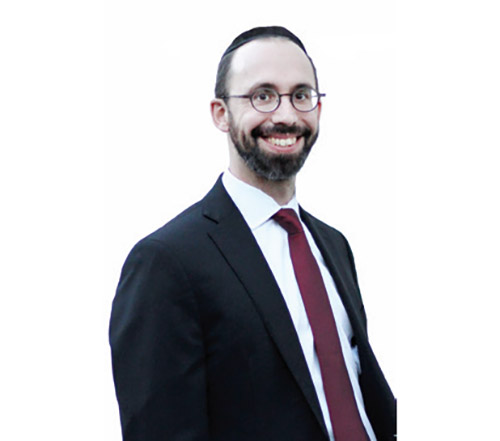
When you’re a father in a house mostly filled with girls, you put on the fixer-man hat quite often. Last week I was Baruch the Plumber, sent to unclog a sink drain full of hair. I rolled up my sleeves, gathered my strength, and went into the bathroom with my trusty snake to clear that drain. Baruch Hashem, I emerged successful!
Believe it or not, this little episode reminded me of an incredible insight from the Sfas Emes on Parshas Vayeitzei.
Yaakov arrives at the outskirts of Charan and sees many shepherds gathered around a well. They are all waiting for extra hands to appear to lift the massive boulder covering the well. As Yaakov comes closer, he sees a young girl approaching the well with a flock of sheep. He confirms this girl was Rochel, the daughter of Lavan, his uncle. Seeing she will need water for her flock, Yaakov walks over to the well and removes the boulder all by himself. Rochel and the other shepherds are in awe. Rashi quotes the midrash that says that Yaakov removed the rock from the well like a cork from a bottle. Why did Rashi describe it this way—like a cork from a bottle? How was Yaakov able to do this when many shepherds together could not?
The Sfas Emes explains the symbolism of the stone on the mouth of the well. The well represents our ability to draw forth tefillah (prayer) and Torah from within ourselves. The stone represents the blockages that prevent us from opening our mouths in prayer or Torah study. Often, we want to daven or learn Torah, but we find we just can’t focus. The shepherds needed a lot of help to move the stone—similar to our needing a minyan (a group of at least 10 men) to gather together to pray.
The same can be said of learning Torah. It’s much more easily done in a group.
So how was Yaakov able to remove the heavy boulder by himself? There was a fundamental difference between Yaakov and the shepherds. The shepherds viewed the rock as a heavy obstacle blocking their access to water. Yaakov viewed the rock as a cork in a bottle. A cork serves a very important function—it protects the contents of the bottle. The rock wasn’t just preventing access to the water; it was also protecting the water in the well from foreign substances falling inside.
Similarly, we may sometimes feel the words of prayer are blocked from our mouths. In truth, it may be Hashem helping us to slow down. When we are compelled to dig deeper and work harder at our davening, our words gain a new dimension of sincerity and meaning.
There was a young man I befriended who was very estranged from Torah and mitzvos. He had been challenged with addictions and abuse for many years. One Yom Kippur, I was delighted to see him enter the shul. This was the first time he had walked into a shul in 10 years! I greeted him with a big smile. I kept glancing at him throughout the day and saw on his face that he was struggling. Yet, near the end of the day, at the powerful and moving Neilah prayer, I saw tears streaming down his cheeks.
The next time we met I told him how proud I was of him and asked him to share his Yom Kippur experience with me. He said, “I came into shul and wanted to pray, but I couldn’t do it. All my struggles were creating a wall in front of me. How could I pray after all I have done? How can I open my mouth in prayer to Hashem? Finally, at Neilah, I remembered the gates were fully open at that time. Hashem now wanted to hear my prayers and I started to cry. The words just started flowing. I was so happy—I was able to pray again!”
Whenever we struggle to find the words, or to capture the feeling in our davening, let’s remember not to view our struggle as trying to lift a heavy rock from a well, but rather removing a cork from a bottle, which was placed there to keep our prayers pure and sincere.
By Rabbi Baruch Bodenheim
Rabbi Baruch Bodenheim is the associate rosh yeshiva of Passaic Torah Institute (PTI)/Yeshiva Ner Boruch. PTI has attracted people from all over northern New Jersey, including Teaneck, Bergenfield, Paramus, Rockaway and Fair Lawn. He initiated and continues to lead a multi-level Gemara learning program. Recently he has spread out beyond PTI to begin a weekly beis midrash program with in-depth chavrusa learning in Livingston and Springfield. This year he joined Heichal Hatorah in Teaneck as a Gemara iyun rebbe. His email is rb@ptiweb.org.











